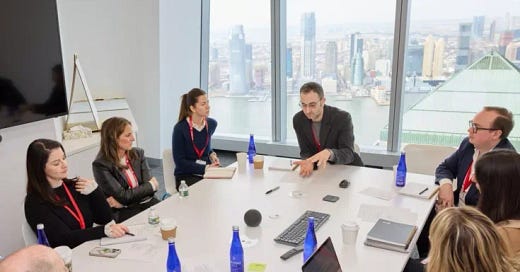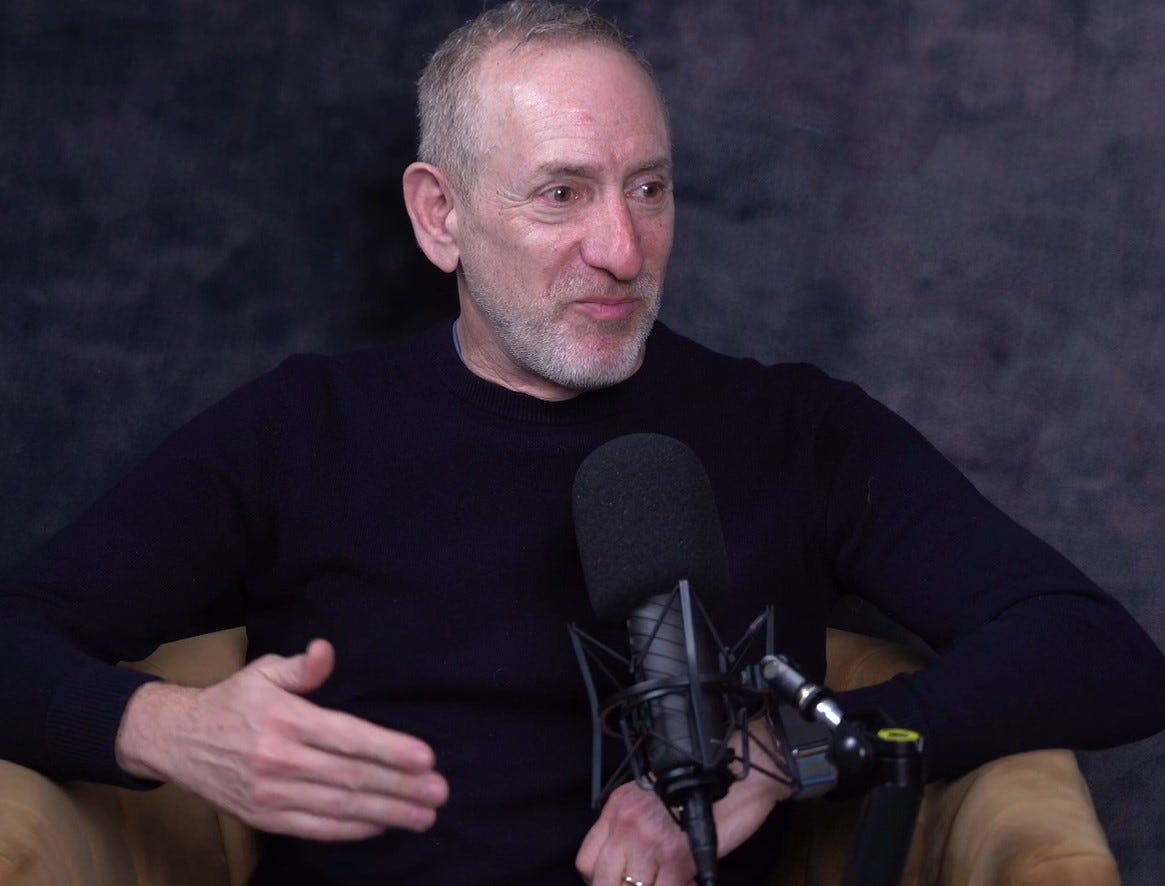Unless capitalism is over, AI content theft has to fail | Daily Mail US editor interview
And we hear from the commercial chiefs of BBC Studios, Associated Press and The Guardian US about how they are making journalism pay in the digital age
Last week Press Gazette spent a day locked in a room with US publishers on the 63rd floor of the World Trade Center in New York to figure out some answers to the great existential challenges facing journalism in the digital age.
After a few days to let the ideas from our third Media Strategy Network USA event marinate (and to allow me to de-marinate from the post-event Old Fashioneds), I can now share my ten key learnings from the conference.
My biggest take-home was that I left the event feeling equally annoyed about what is happening in the world of generative AI but also optimistic that the new technology will not be allowed to kill journalism.
I’m still pissed off that my life’s work has been stolen by the likes of ChatGPT.
But New York is probably the capital city of capitalism and multiple serious people I spoke to there felt that the status quo on generative AI cannot stand.
Allowing AI companies to steal everything that has ever been produced by the news industry so that they can then compete with publishers using their own stuff is not how capitalism works. Unless ownership is over, the AI companies are going to have to either write publishers a big cheque or stop doing what they are doing.
Brand safety was a frequent gripe from publishers: the misguided view from advertisers that consumers of news cannot read a serious story and also look at an advert for a holiday without confusing the two.
UK publishers continue to maintain huge newsrooms in the US, drawn by the higher advertising rates and other revenue opportunities which abide in the world's biggest economy.
Our UK editor Charlotte Tobitt caught up with Daily Mail US editor Katie Davies to find out how her 200-strong newsroom has created an incredibly loyal audience (60% of whom come to the website directly according to internal figures).
We will have some more content from our US field trip in the days to come, including a fascinating interview with Dotdash Meredith CEO Neil Vogel which should put to bed the idea that legacy media is a story of decline.
Our latest podcast was also recorded on location in New York. I asked media consultant Matthew Scott Goldstein (MSG) how concerned he thinks publishers should be by the threat posed to their business models by generative AI.
It's a 9.9 out of ten, according to MSG, i.e. the most worried they have ever been about anything. But he also explained why AI companies desperately need the content publishers produce and should be writing those who create quality content big cheques.
On Press Gazette
Brand safety woes continue and the coming storm on AI litigation
Ten golden nuggets from Press Gazette's Media Strategy Network USA conference in New York.
Daily Mail US editor: Reader loyalty is brand’s biggest asset
Katie Davies interview three weeks after launch of Mail+ in US and Canada.
AP revenue boss notes ‘concerning trends’ from advertisers in current political cycle
Audience growth seen at both APNews.com and BBC.com since they were each relaunched.
Also this week on Press Gazette
Gamified app Newsreel aims to lure ‘news curious’ Gen Z away from Instagram
Newspaper ABCs: Daily Mirror drops below print circulation of 200,000
Independent launching AI-powered news service for ‘time-poor audiences’
Gamified app Newsreel aims to lure ‘news curious’ Gen Z away from Instagram
Telegraph pays ‘substantial’ libel damages to tech entrepreneur
Guardian, GB News and Newsquest among latest publishers to tell readers: ‘consent or pay’
With launch of AI Mode Google threatens to bleed news media dry
Latest podcast: Generative AI could spell doomsday or a be a big pay day for publishers
Press Gazette editor-in-chief Dominic Ponsford caught up with New York-based publishing consultant Matthew Scott Goldstein (MSG) to talk about the future of news in the era of AI.
How concerned should publishers be about the threat posed to their business models by generative AI? It’s a 9.9 out of ten said MSG.
He explained why generative AI could spell the end of the road for publisher websites, but why it could also lead to a huge payday for the creators of quality content.





